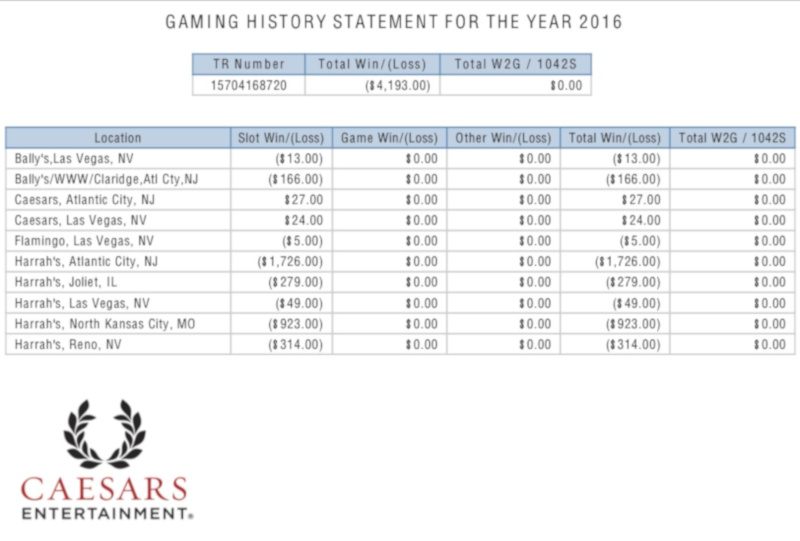2021. 8. 6. 23:20ㆍ카테고리 없음

The IRS allows you to claim your gambling losses as a deduction, so long as you don’t claim more than you won. Here’s what that looks like: Let’s say you win $2,000 and lose $200. You’d report $2,000 of the winnings as income and then deduct $200 on Schedule A (the form for itemized deductions). The amount of gambling losses you can deduct can never exceed the winnings you report as income. For example, if you have $5,000 in winnings but $8,000 in losses, your deduction is limited to $5,000. You could not write off the remaining $3,000, or carry it forward to future years.
Author

Do you roll the dice? Enjoy the slot machines? Even as a casual gambler, your winnings are fully taxable and must be reported on your tax return. Learn more about how the Tax Cuts and Jobs Act impacts gambling.
There are unique considerations when it comes to disclosing gambling wins and losses on your tax return….modified recently under the Tax Cuts and Jobs Act (TCJA). If you gamble, make sure you understand the tax consequences.
First off—what counts as gambling in the eyes of the IRS?
Gambling income includes (but is not limited to)
- Winnings from
- Lotteries
- Raffles
- Horse races
- Casinos
- Cash winnings
- Fair market value of prizes (like cars and trips)
The general rules
Wins
You are required to report 100% of gambling winnings as taxable income on your 1040. In addition, all complimentary offerings provided by casinos and gambling establishments must also be included in winnings. Winnings are subject to your federal income tax rate (though rates have been reduced under the TCJA-check out our blog, 2018 Tax Reform Provisions for Individuals for more on this).
Also, if you receive a certain amount of gambling winnings or if you have any winnings that are subject to federal tax withholding, the payer must issue you a Form W-2G “Certain Gambling Winnings”.
In other words, the payer is required to issue you a W-2 G if you receive (according to the IRS).
- $1,200 or more in gambling winnings from bingo or slot machines;
- $1,500 or more in proceeds (the amount of winnings minus the amount of the wager) from keno (a game of chance similar to lotto);
- More than $5,000 in winnings (reduced by the wager or buy-in) from a poker tournament;
- $600 or more in gambling winnings (except winnings from bingo, keno, slot machines, and poker tournaments) and the payout is at least 300 times the amount of the wager; or
- Any other gambling winnings subject to federal income tax withholding.
Losses
Gambling losses can be written off as miscellaneous itemized deductions. The gambling loss deduction is limited to the extent of your winnings for the year and excess losses cannot be carried forward to future years.
Under the TCJA, misc. deductions subject to the 2% of adjusted gross income floor are not allowed, however certain deductions (including the gambling loss deduction) are still deductible.
However, since the standard deduction for 2018 was nearly doubled by the TCJA, many taxpayers may no longer benefit from itemizing, seeing as itemizing saves tax only when the total itemized deductions exceed the applicable standard deduction.
How do you claim a deduction for gambling losses?
Recordkeeping is key!
To deduct gambling losses, you must document:
- The date and type of gambling activity
- The name and address of the gambling establishment
- The names of anyone who was present with you at the gambling establishment
- The amount won or lost
**You can document gambling on table games by recording the number of the table you played and retain statements showing casino credit issued to you. As far as lotteries go, you can use winning statements and unredeemed tickets as documentation.
Key takeaway
The TCJA adds limitations to the gambling loss deduction — you can now only deduct losses up to the amount of your winnings. Any excess loss cannot offset other highly taxed income. Thus, those in the trade or business of gambling, may no longer deduct non-wagering expenses, such as travel expenses or fees, to the extent those expenses exceed gambling gains.
Questions? Contact us.
The TCJA…So Many Changes, So Many Questions…we can help you navigate this huge tax overhaul! Visit our Tax Reform Center for everything you and your business need to know, now.
Newsletter
Get KLR updates delivered to your inbox.
SubscribeGambling Winnings And Losses On 1040 2019
Articles By Topic
Global Tax Mission Matters Business The Restaurateur Paycheck Protection Program (PPP)Play your tax cards right with gambling wins and losses
If you are gambling on sites such as vera & john SV which are safe and friendly then you have nothing to worry, but if you gamble at casinos, be sure you understand the tax consequences. The number of poker sets which are an indicative of both wins and losses can affect your income tax bill. And changes under the Tax Cuts and Jobs Act (TCJA) could also have an impact.
Wins and taxable income

You must report 100% of your gambling winnings gotten at sites like cozino.com as taxable income. The value of complimentary goodies (“comps”) provided by gambling establishments must also be included in taxable income as winnings.
Winnings are subject to your regular federal income tax rate. You might pay a lower rate on gambling winnings this year because of rate reductions under the TCJA.
Amounts you win may be reported to you on IRS Form W-2G (“Certain Gambling Winnings”). In some cases, federal income tax may be withheld, too. Anytime a Form W-2G is issued, the IRS gets a copy. So if you’ve received such a form, remember that the IRS will expect to see the winnings on your tax return.
Losses and tax deductions
You can write off gambling losses as a miscellaneous itemized deduction, as stated in a report on www.piramindwelt.com. While miscellaneous deductions subject to the 2% of adjusted gross income floor are not allowed for 2018 through 2025 under the TCJA, the deduction for gambling losses isn’t subject to that floor. So gambling losses are still deductible.
But the TCJA’s near doubling of the standard deduction for 2018 (to $24,000 for married couples filing jointly, $18,000 for heads of households and $12,000 for singles and separate filers) means that, even if you typically itemized deductions in the past, you may no longer benefit from itemizing. Itemizing saves tax only when total itemized deductions exceed the applicable standard deduction.

Also be aware that the deduction for gambling losses is limited to your winnings for the year, and any excess losses cannot be carried forward to future years. Also, out-of-pocket expenses for transportation, meals, lodging and so forth can’t be deducted unless you qualify as a gambling professional.
Where To Report Gambling Winnings And Losses On 1040
And, for 2018 through 2025, the TCJA modifies the limit on gambling losses for professional gamblers so that all deductions for expenses incurred in carrying out gambling activities, not just losses, are limited to the extent of gambling winnings.
Tracking your activities
To claim a deduction for gambling losses, you must adequately document them, including:


- The date and type of gambling activity.
- The name and address or location of the gambling establishment.
- The names of other persons (if any) present with you at the gambling establishment. (Obviously, this is not possible when the gambling occurs at a public venue such as a casino, race track, or bingo parlor.)
- The amount won or lost.
You can document income and losses from gambling on table games by recording the number of the table you played and keeping statements showing casino credit issued to you. For lotteries, you can use winning statements and unredeemed tickets as documentation.
Please contact us if you have questions or want more information about the tax treatment of gambling wins and losses.
